Global Benchmark: Real beat Barca, Schalke take China, Mexico rise and Man United's YouTube growth
We all love a rankings table. Whether it is the more empirical standings of our football team or the spurious, highly-objective top 10 goals, saves, hey even breakfast cereals, of those oh-so enticing YouTube videos.
That’s why I always wait for Results Sports Global Benchmark with baited breath. Yes it tracks the so-called ‘vanity metric’ of reach and not the more significant engagement numbers. But guess what, we’re all vain! For example, it was noticeable that the success of Cristiano Ronaldo’s move to Juventus was measured in added followers.
Also, I always let out a weary sigh when I see engagement numbers across clubs that supposedly ‘prove’ success but take so little into account of the priorities and potential of competitors. If indeed, they are competing in that area at all.
It is pretty easy to win a 100m dash if you are sprinting and everyone else is jogging.
At least Results Sports’ figures compare orange with oranges, apples with apples. It is only a version of the truth but, at least, a clear-sighted one. Here are my notes on the latest figures.
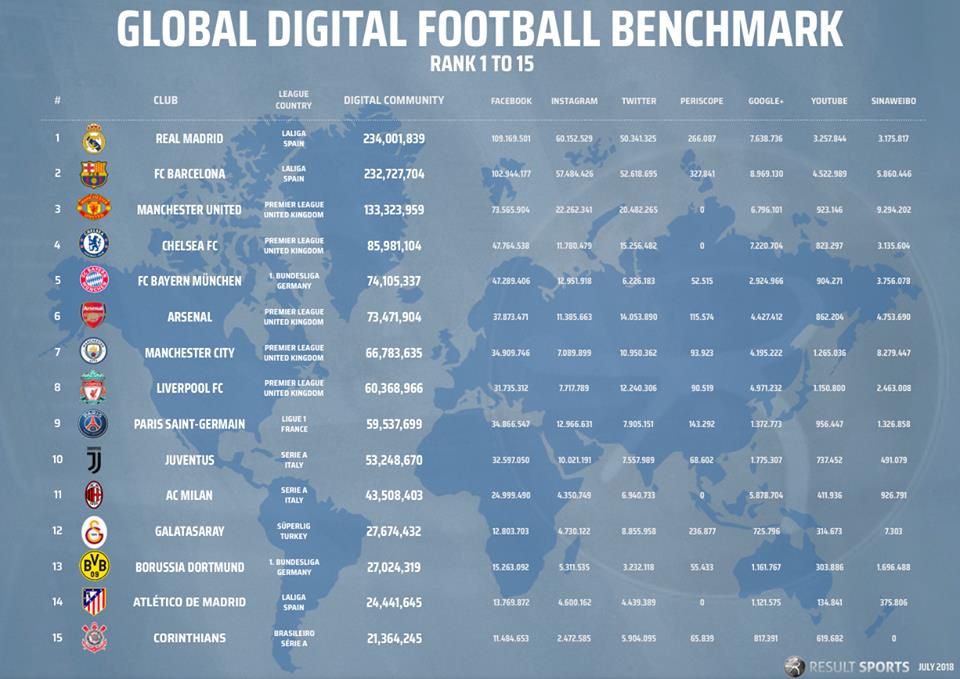
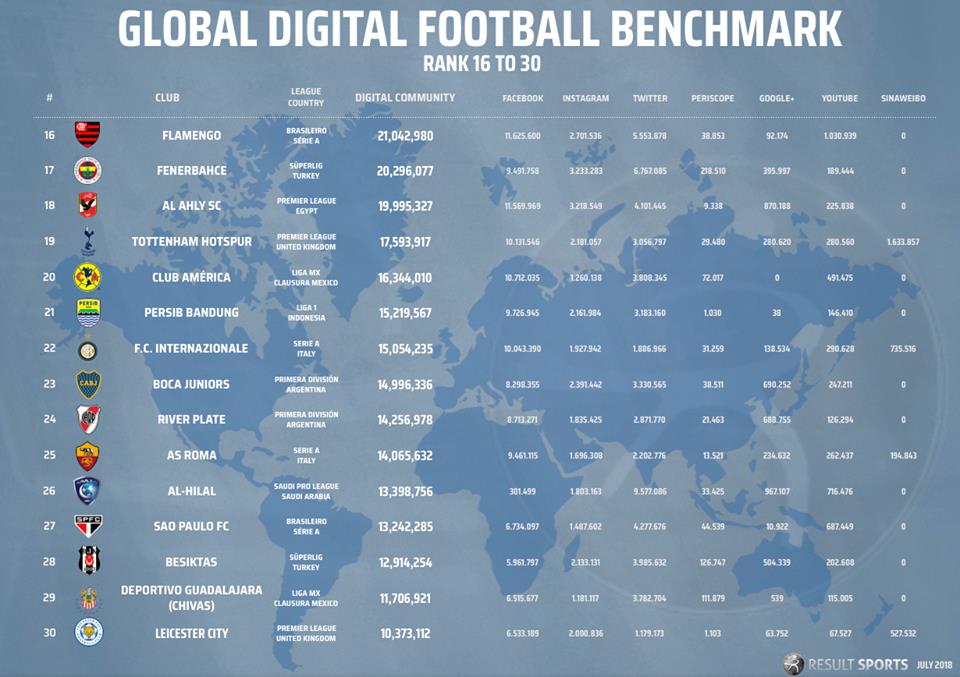
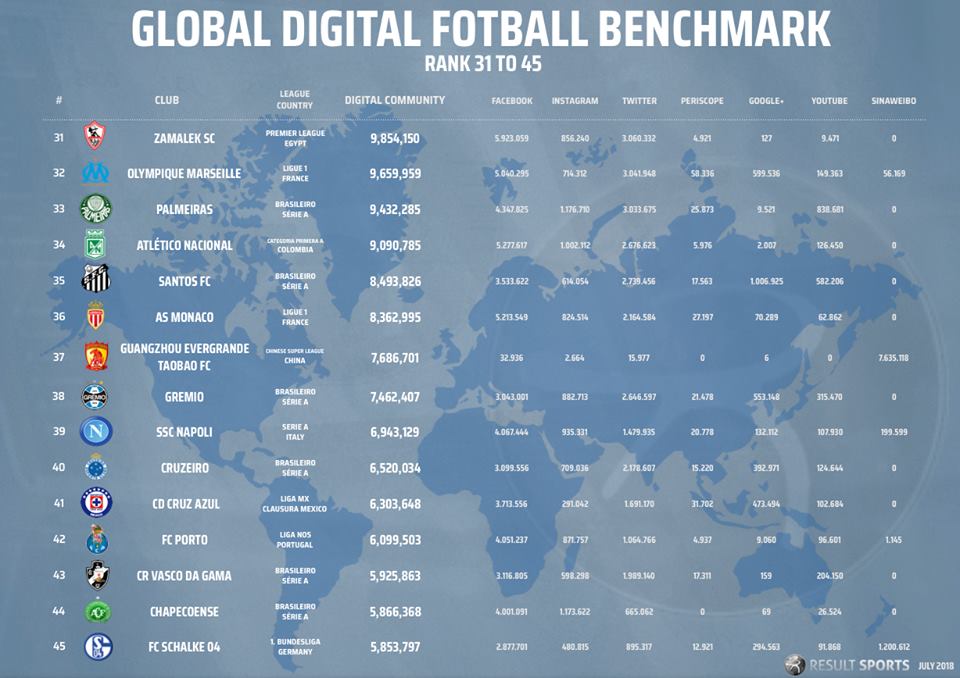
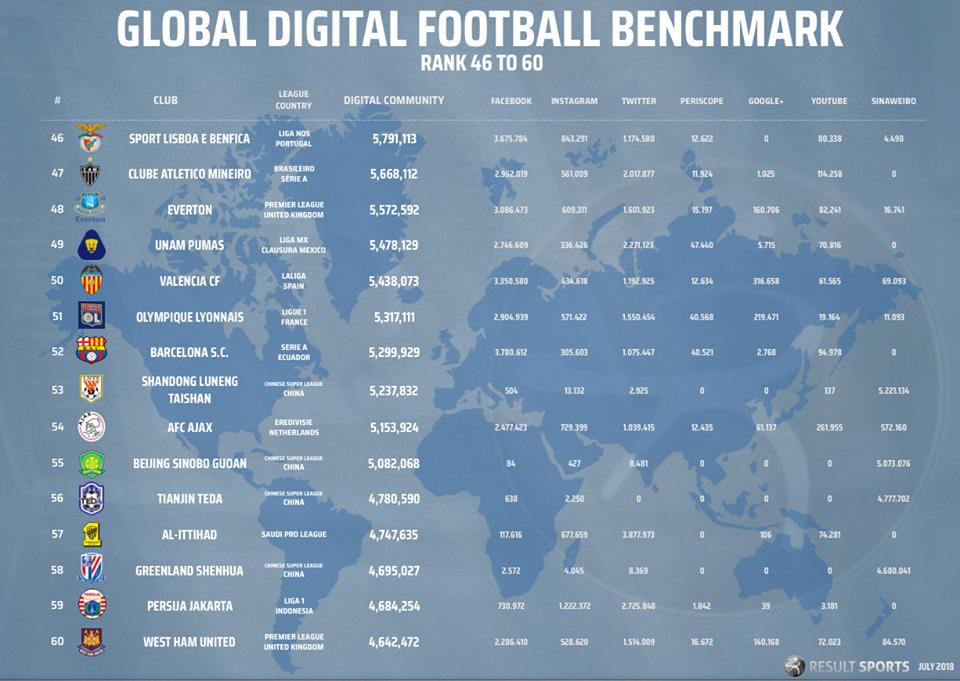
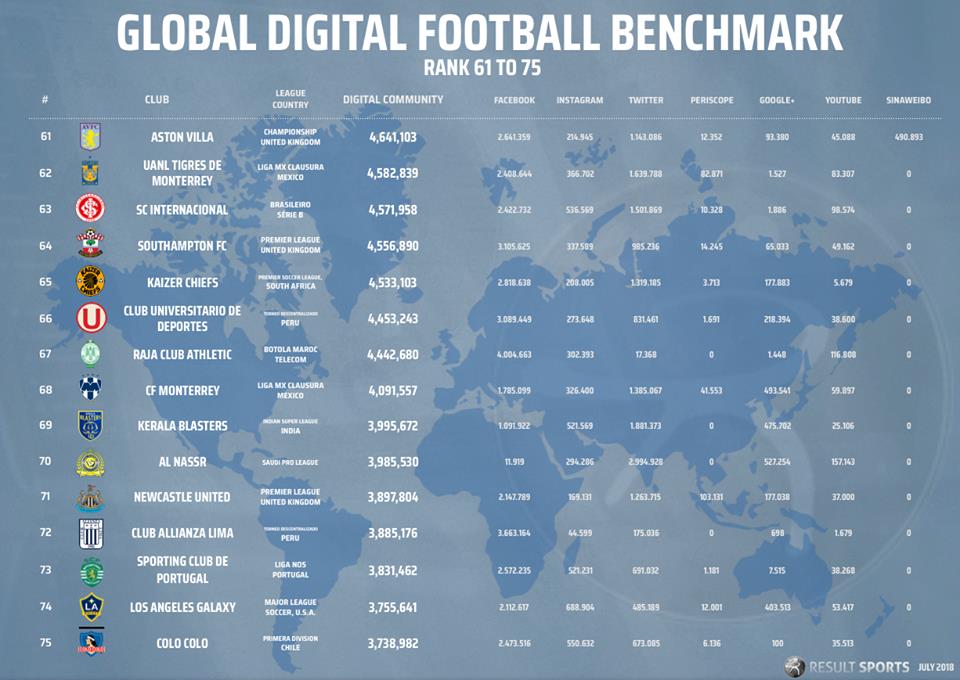
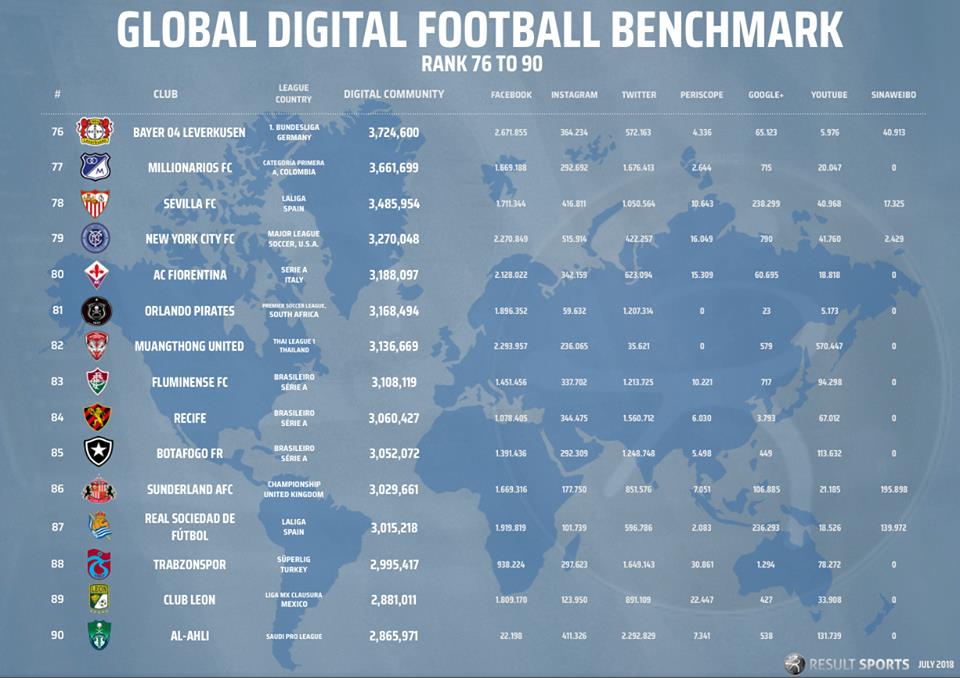
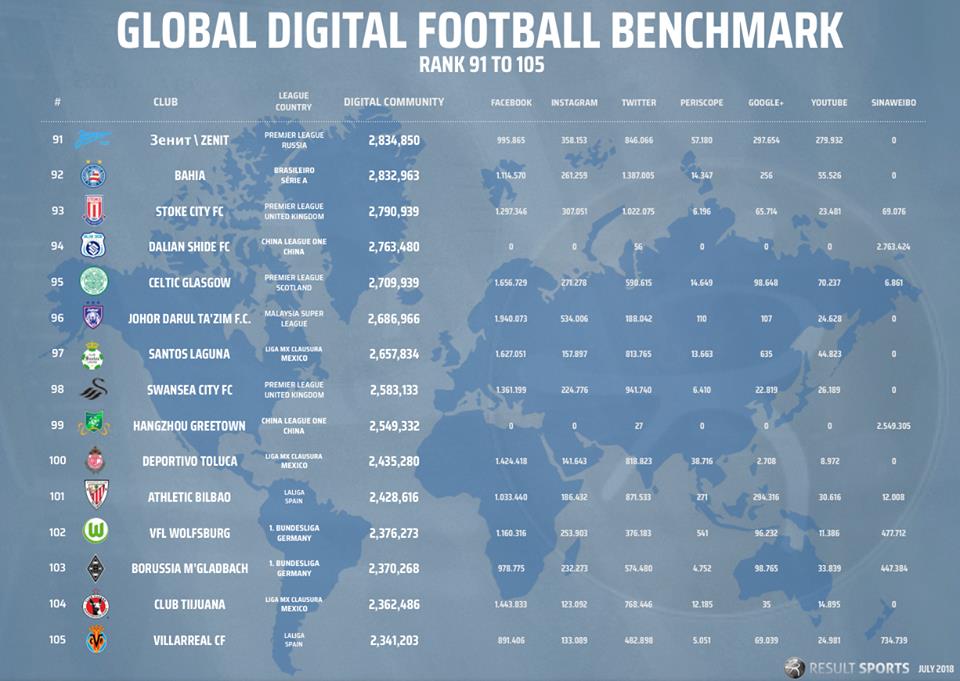
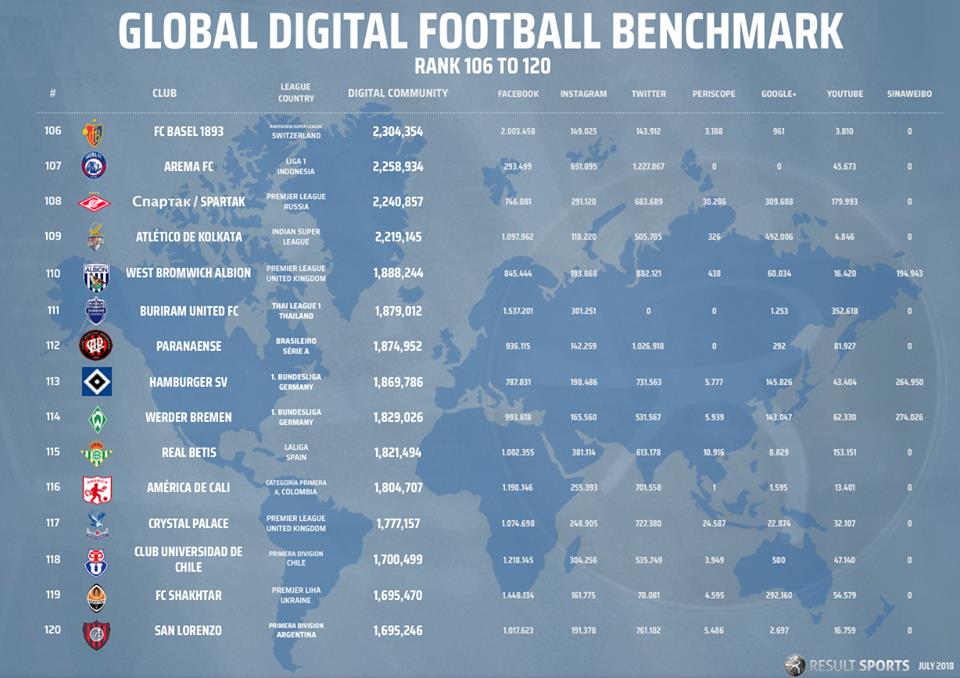
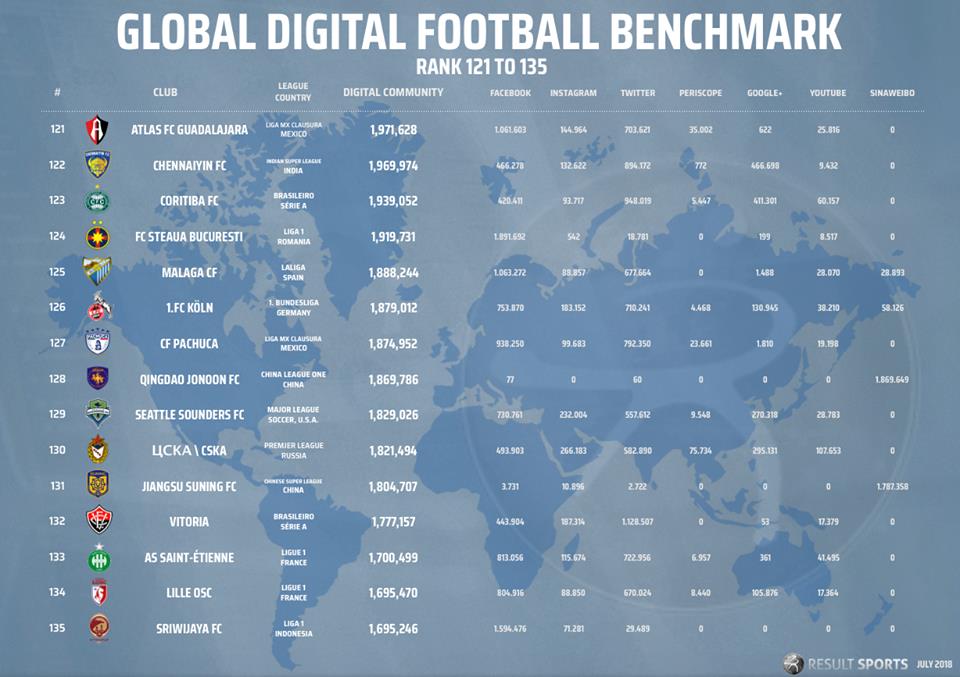
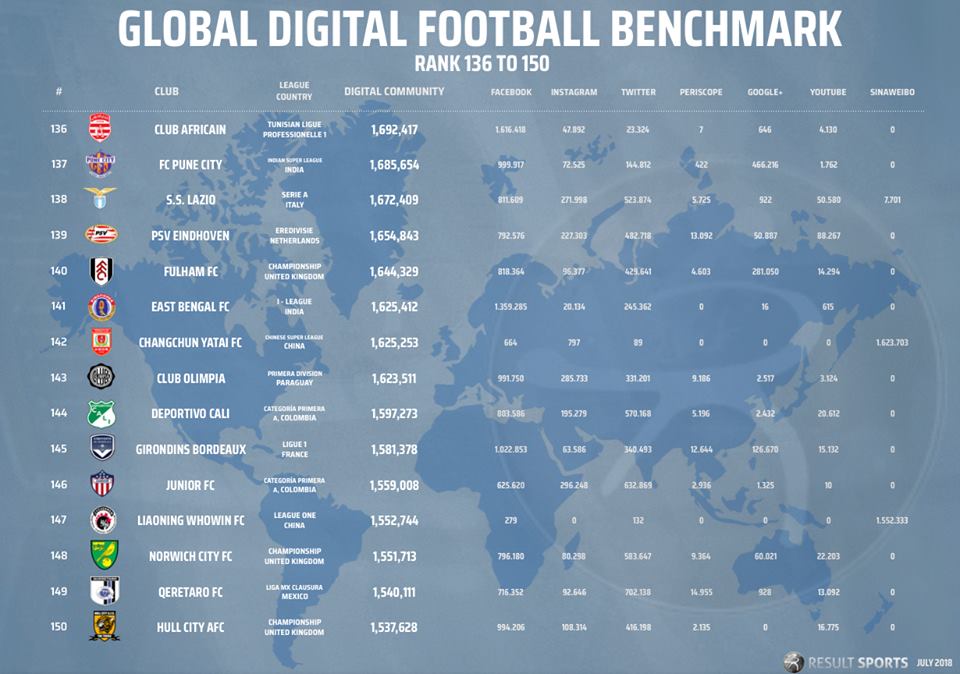
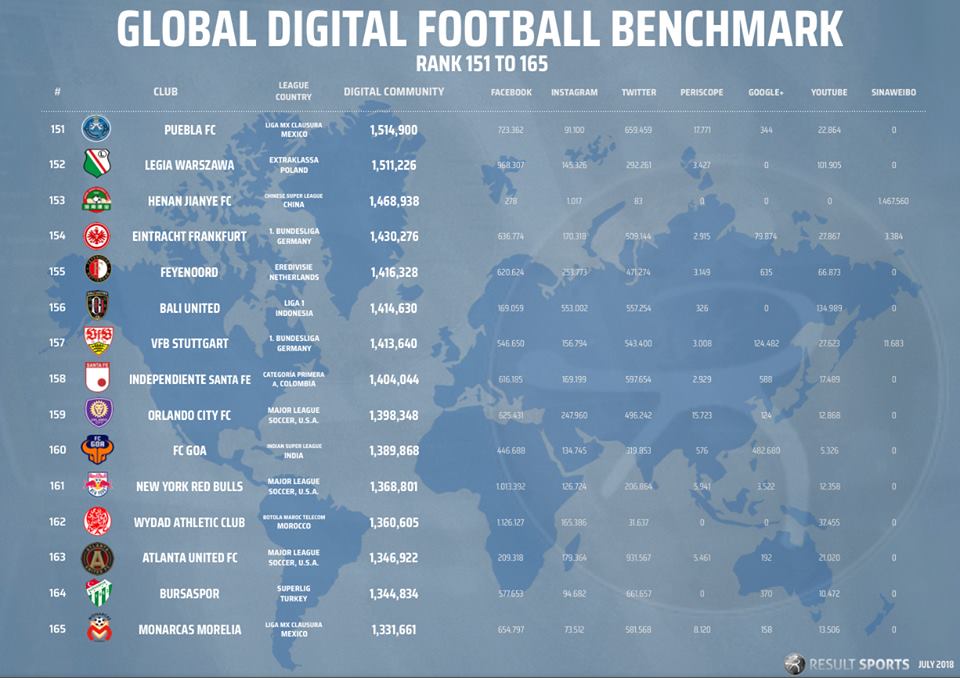
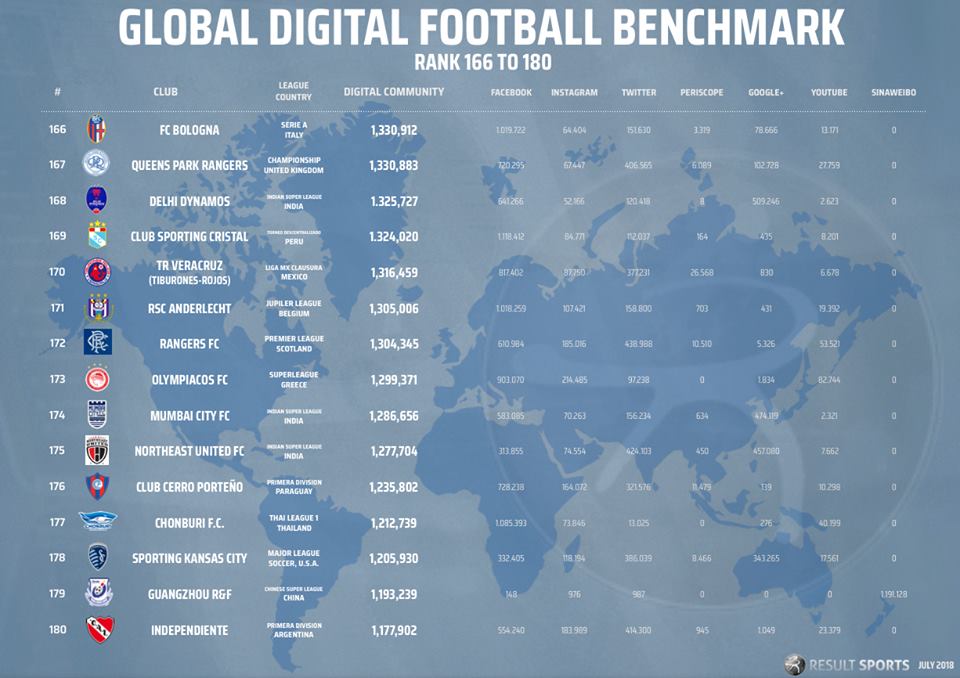
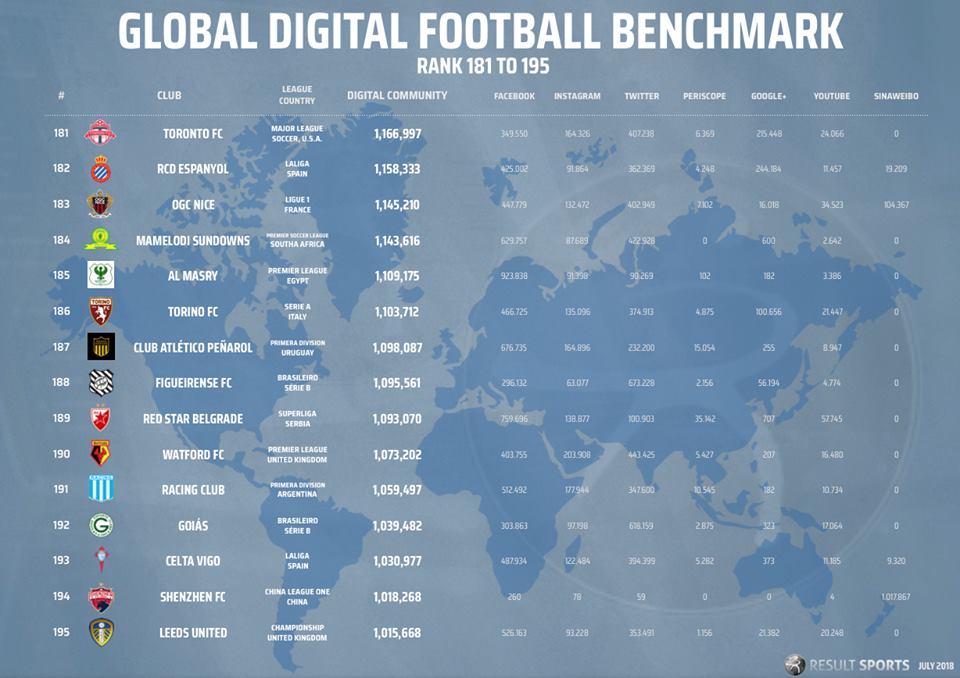
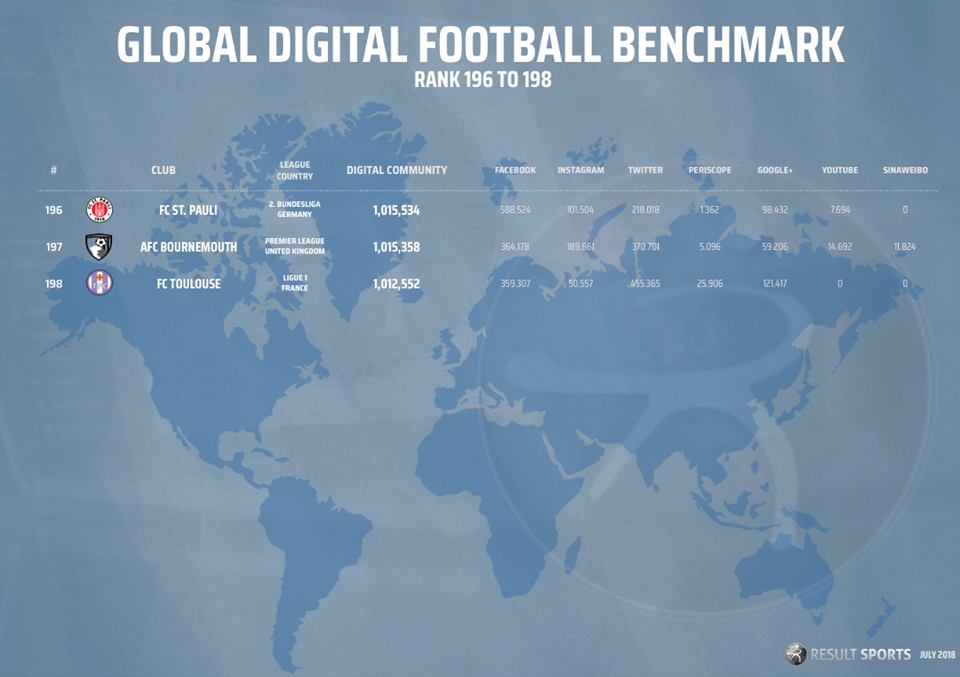

The change at the top
Real Madrid have taken the No1 spot from Barcelona, despite a disadvantage of 2.5m on the newly-added platform, Sina Weibo. The Catalan club have lost almost 0.5m on Facebook as the 2017 algorithm changes really start to bite. Real Madrid have added a modest 3m. That, and an increased advantage on Instagram, have been enough to cause the shift in positions.
Man United started a YouTube channel and it was popular…. Go figure!
They were late on Twitter and even later on YouTube but have made up for lost time. I remember it took Manchester United some years to overhaul Arsenal as the Premier League’s top dog on Twitter however their rise on YouTube has been phenomenal. They only launched on February 22 but have amassed 0.92m followers, larger than everyone but Real Madrid, Barcelona, Liverpool and Manchester City.
Facebook saturation
The days of organic reach on Facebook have been over for a while now and it is showing in these figures. Of the top 15, only Manchester City (5.9m), Bayern Munich (3.5m) and Real Madrid (2.5m) saw anything more than marginal growth.
Schalke are doing something special on Sina Weibo
Now we know there is fakery on all social media and, in particular, clubs have reported suspiciously high figures in China. However, Schalke’s figure of 1.2m followers on Sina Weibo have some history. Way back in 2014, they had their website in German, English, Russian, Chinese and Japanese. At that point, they were already active on Sina Weibo, Tencent Webo and WeChat.
They had also been the first German club to use the Global Initiative platform on Facebook. The inclusion of Sina Weibo in these figure has seen Schalke rise six places from 51 to 45.
Further down the list, Aston Villa’s 490,000 followers on Sina stands out. One suspects this may be down to their Chinese ownership.
Turning to the top 10, the two Manchester clubs dominate. United have 9.2m while City have a perhaps surprising 8.2m. Elsewhere, Villarreal have 734,000, almost double that of Champions League regulars Atletico Madrid. This is probably down to their emphasis on China over the years. In 2012, they put their Sina Weibo name on their kit when they played Barcelona. The shirts themselves were manufactured by Chinese company Xtep. They even entered into an agreement with Dalian Wanda to bring their young players to the club to train.
China
Sina Weibo is a welcome addition to Results Sports’ figures as sizeable Chinese clubs come into the reckoning. It was illuminating to see them rated alongside the other big clubs. It was also interesting to see how many clubs have a presence on the mainstream western social media platforms. The answer was less than I thought given some of these clubs have major stars in their squads.
Don’t forget Mexico
Mexico were one of the big digital/social media winners in the World Cup. They began the tournament as the second most followed federation in the tournament behind Brazil. This was a surprise to me.
By the time they were knocked out in the Round of 16, they enjoyed the biggest uplift of any team. Their 1.1m growth was almost double that of England.
So it seems well worth looking at the 14 Liga MX teams with over 1m reach. The most notable feature is the relative lack of Instagram followership. Most of the top 15 clubs in the Global Benchmark have 20-25% of their reach from the photo-sharing app. But it is much lower for Mexican sides. The top team, Chivas Guadalajara, have almost 10% of their 11.7m derived from Instagram but Cruz Azul have less than 300,000 of their 6.3m reach from the platform while the proportions are nearly the same for Unam Pumas. Club Leon have only 123,000 Instagram followers from an overall reach of 2.9m, roughly 5%.






